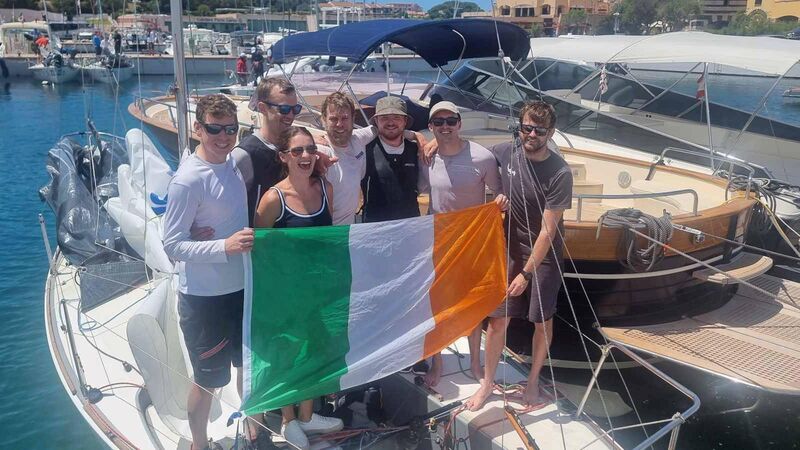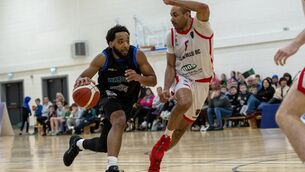Amateur Irish sailors who gave New Zealand’s America’s Cup champions a run for their money

The Team Headcase crew after winning the Irish National J24 Championships in Sligo Yacht Club in 2021.
Pints and grand plans don’t usually mix. Ideas and ambitions forged in the fire of a night out rarely stand up to the cold light of the morning after, so there was nothing immediately exceptional about four young sailors daring to dream over a few beers at the annual ‘Cork Week’ in Crosshaven seven years ago.
Louis Molloy and Marcus Ryan are cousins from Mayo. Cillian Dickson sails out of the Lough Ree club and Sam O’Byrne got his sea legs in Howth. All four had competed on boats owned by other people. Wealthy people. Now they wanted a boat to call their own. Nothing fancy. Something accessible, affordable. Something to call their own.











